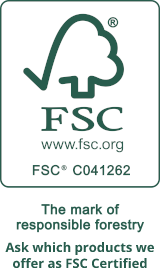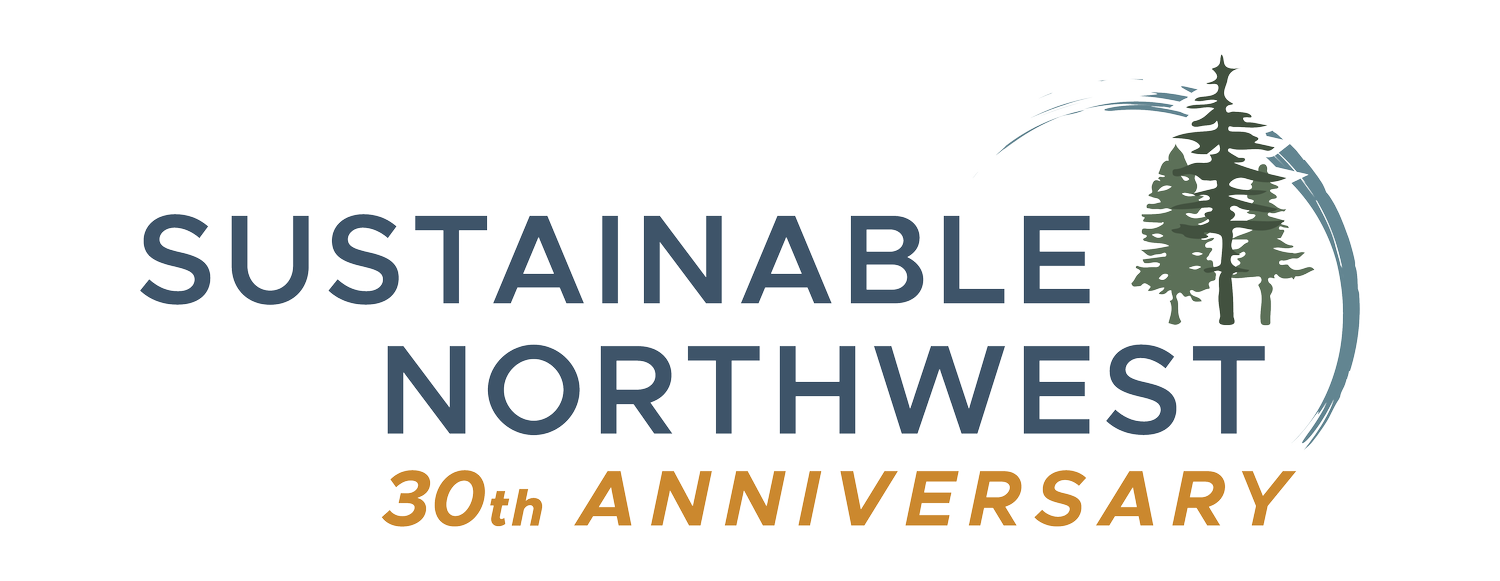The Undervalued Hardwoods of Oregon
A mill visit to southern Oregon to learn about our local hardwoods and see what it takes to turn logs into lumber.
One of the best parts of working at Sustainable Northwest Wood is our relationships with the people who provide our wood and wood products. We partner with over 40 mills and fabrication shops around the region in varying size, capacity and capabilities. It is always inspiring and educational to tour the mills, to see the operations in person, and to gain first-hand knowledge of what it actually takes to bring the beautiful, local woods we offer from the rural sawmills to our woodyard in SE Portland.
For our company retreat this year, we took the team to visit the hardwood mill in Southern Oregon that supplies our Pacific Madrone, Myrtlewood, Tanoak and some of our Oregon White Oak.

When we arrived, they had a huge Madrone log on the mill that had been salvaged from other forest harvesting activities. Often when loggers are cutting Douglas fir, they just cut Madrone trees out of the way and leave them in a slash pile. This mill has built relationships with a network of loggers in the area who will alert them when they’re in a stand of hardwoods, which have historically been undervalued in the quest to supply the world’s demand for Doug fir. Salvaging these hardwoods and creating markets for them adds value to the species and creates job opportunities in rural Oregon.

One such job is that of the sawyer – the sawmill operator who has the challenging job of “reading” and cutting each log into beautiful, useful boards. Salvaged hardwoods are not grown and groomed their entire life for their lumber, so each log is unique, every cut carefully considered to get the best and highest use. Luke, a 23 year old sawyer, studies the log, adjusting the controls on the Wood-Mizer LT-70 mill to turn the log just so, and sets the blade height for the first cut to remove the outer bark – the jackets. Each cutting pass, turning the log, moving the jackets to the waste pile takes time and careful consideration.

After nearly 30 unhurried minutes, the round log becomes a square cube and is ready for slicing into beautiful boards.


The mill rough planks will make their way from the sawmill to another part of the property to be stickered and air dried over the summer, then to the kiln to finish the drying to 6-8% moisture. The boards then go through several passes of sorting, grading, planing, edging, and ripping before they move to the molder to become flooring or are unitized and shipped to our shop for our woodworker community to dream into magical creations. Much of the Madrone we buy from this mill goes to another fabrication partner to be processed into gorgeous butcher block, which involves a whole other set of steps to become the finished product. It is a slow and steady labor of love that takes many skilled hands and many months to complete from start to finish, or log to lumber as they say.




There was much discussion about the previously mentioned “waste pile” and how we might utilize at least some of those wonderfully odd-shaped pieces and sell them for coffee table tops, shelving, or other useful products. There is soooooo much wood waste in our industry – piles of offcuts and mountains of Painted Hills looking sawdust. This mill has already implemented some creative solutions, such as separating the Oregon White Oak sawdust for mulch at nearby blueberry farms and mushroom growers. Sustainable Northwest Wood is investing in education around the benefits of biochar for our local mill partners. Taking the biomass and turning it into biochar will capture, store and even absorb carbon from the atmosphere, results in an incredible soil amendment for local agriculture, and is a potential income stream from wood waste for the mills. More on that to come.


We move on to learn more about Tanoak, now being sourced from the Hoopa and the Coquille Tribes. Also called Tanbark Oak, it is a unique evergreen hardwood in the beech family with characteristics of oak and chestnut. Historically the bark of the tree was used for tanning leather and the acorns were a valuable food source for Indigenous Peoples. Today, this beautiful hardwood lumber is used for flooring, wall cladding, furniture, butcher block countertops and more. The mill is working closely with tribal communities and in the near future we will be able to offer FSC Certified tribal wood, including Tanoak and Douglas fir.

We wrap up the day with sack lunches on the log stacks, the sun burning off the morning clouds, and the aroma of fresh cut wood in our nostrils. It is a satisfying feast for the senses. I walk away thinking we should be paying a LOT more for this wood. At the very least, we are appreciating it far more than we did before this tour. We hope you do too.



Project Support
Find local sustainable wood products in Portland Oregon

Our Why
We exist to promote Good Wood in the Pacific Northwest and beyond
Sustainable Northwest Wood
2701 SE 14th Ave.
Portland, OR 97202
Monday - Friday
8am to 5pm


© 2024 Sustainable Northwest Wood

Our nonprofit parent company is Sustainable Northwest